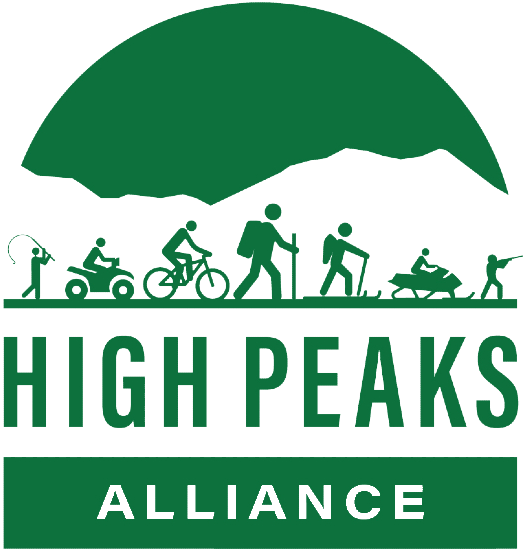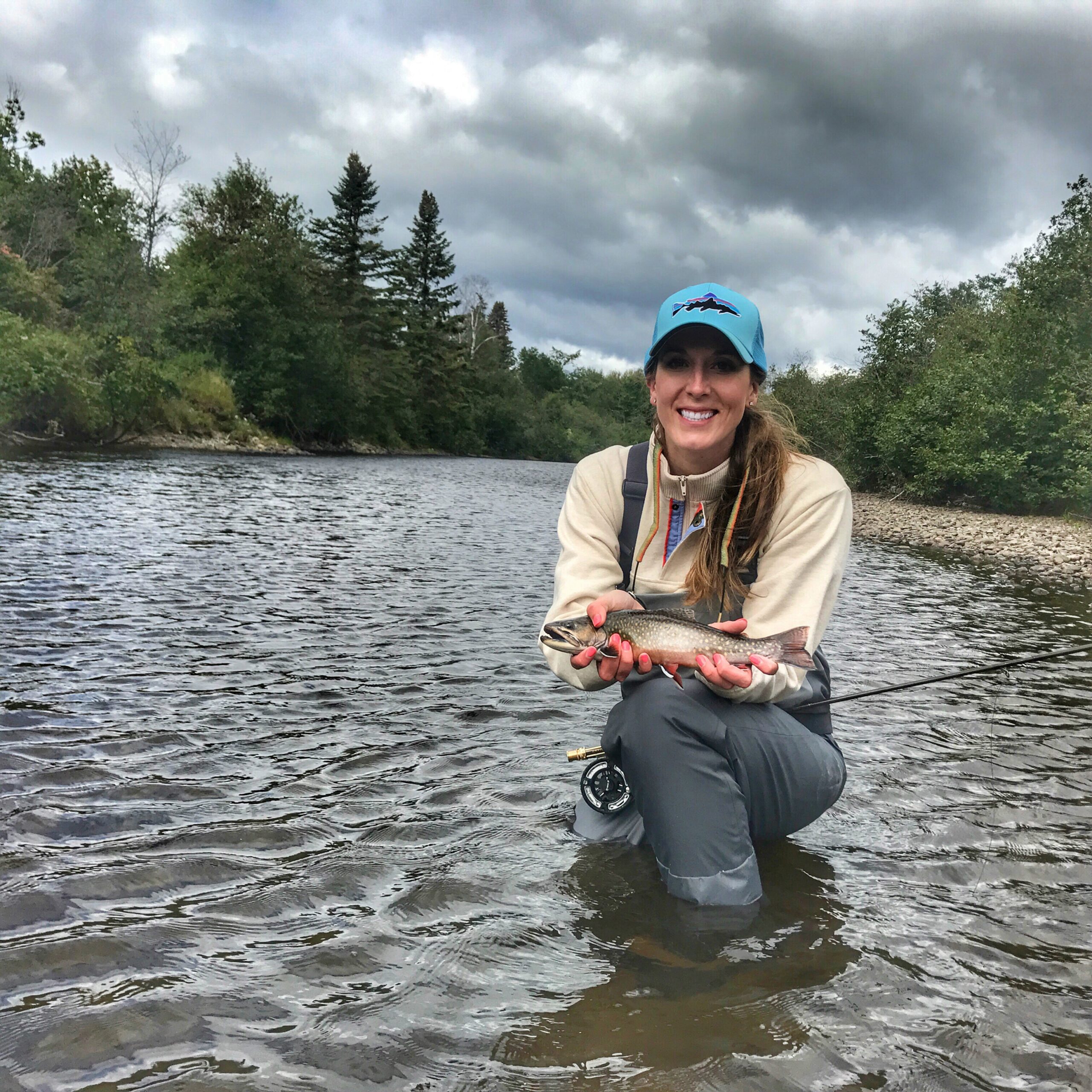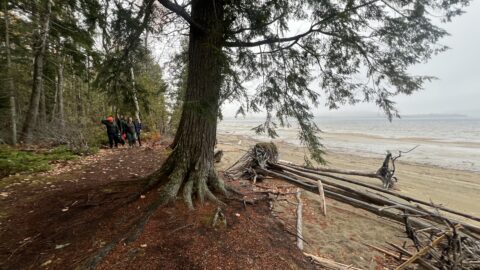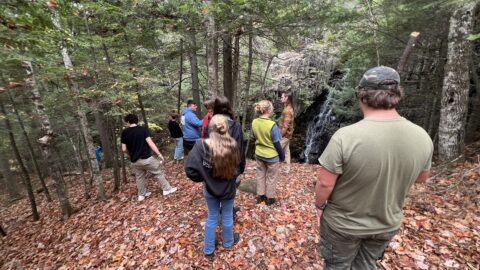Meet Christi, Founder of Maine Women Hunters
Step into the backcountry with Christi, a passionate outdoorswoman, hunter, angler, author, mother, and advocate. In this installment of Voices of the High Peaks, Christi shares the milestones and moments, from solo moose encounters on the Appalachian Trail to creating communities with Maine Women Hunters, that have shaped her relationship with the land.
Her story is one of deep connection, respect for nature, and a commitment to making the outdoors welcoming for all, especially women and newcomers. Christi’s perspective offers a candid look into the joys, challenges, and enduring sense of belonging found in nature.
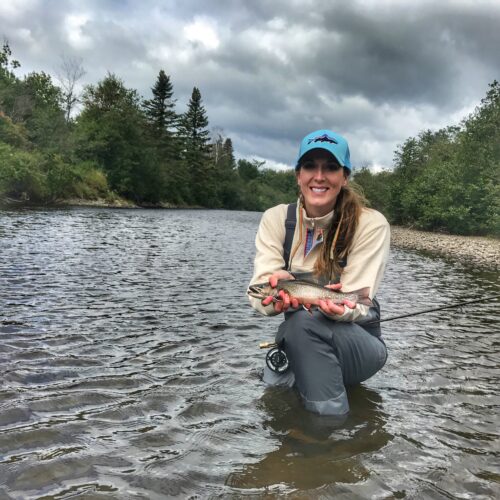
Moments That Forge a Lifelong Bond
Can you share an experience from your time in the High Peaks region that deepened your connection with the land?
The most memorable time I’ve had was when I was thru-hiking the Appalachian Trail. I started by myself but met up with other hikers and joined them for a while. After passing through southern New Hampshire, though, I did the northern part of the state as well as the Maine section completely solo. I remember I saw my first moose on the trail when I was in the High Peaks area.
I know people romanticize what the Appalachian Trail is going to be like, and once you’re doing it, it can get monotonous. You hear traffic a lot at night when you’re camping. You’re crossing roads and running into lots of dayhikers. When you get to Maine, though, it really is what you imagined it to be. It’s the romantic part of the trail where you don’t see a lot of people. You don’t cross many busy roads, and there are a lot of ponds. It’s just a really beautiful part of the whole AT.
What makes the High Peaks region such a unique place for outdoor adventure?
The High Peaks Region is accessible to people, even if you live somewhere like Portland. You can live in the biggest and most developed part of our state, and just a short drive away you can feel like you’re in the middle of nowhere- that’s what I like about it. The wild places in the High Peaks are such an important resource for future generations, and are one of the last strongholds for wild native brook trout. One of my favorite spots to tell people about is a two-seater privy on the Appalachian Trail with a cribbage board in between the two seats. It’s a must-see if you’re thru-hiking, up near Piazza Rock.
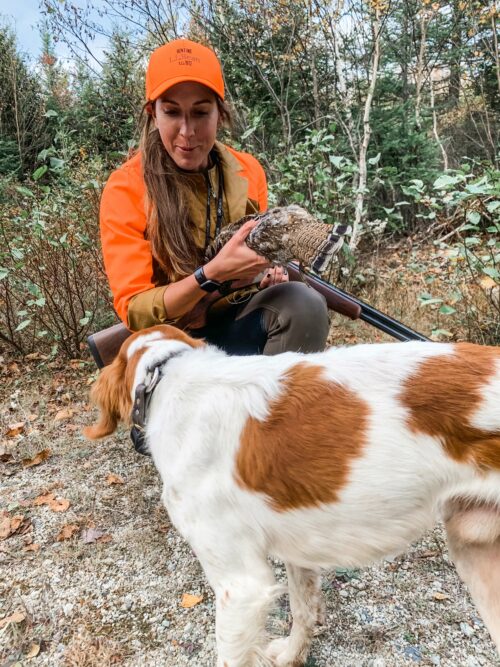
Guardians of the Land
What role do hunters play in Maine land stewardship, and what does conservation mean to you?
Hunters provide a unique perspective. The majority of the population does not hunt, so we remind people that it can be sustainable to be a consumptive user and take things off the land. Hunting reminds people that everyone who eats meat is taking an animal’s life- something that’s so easy to forget.
Hunters also go to a lot of conserved land, and parts of the woods that are not necessarily the most beautiful parts. They’re going off the beaten trail. Where other parties may overlook a parcel of land because it doesn’t have a pond or a mountain top view, hunters can remind people that all different types of land are valuable.
Conservation, to me, is about respecting the land and respecting the wildlife. Even when you take the life of an animal, you can do it in a respectful way, ensuring that these opportunities will be there for generations in the future.
What advice would you give to people who want to start getting outdoors more to hunt and fish but are feeling intimidated or overwhelmed?
I would tell them to hire a guide- even just for half a day. It’s an investment, but you learn so much from them. Everything is provided, and it’s a great opportunity to try gear out before fully investing in your own equipment. It’s also a great chance to pick their brain!
I like to tell people that you don’t have to be scared of anything. We’re lucky we live in Maine because we don’t have grizzly bears or mountain lions, we don’t even have poisonous snakes. Hypothermia is your biggest risk, as well as getting Lyme’s disease from ticks. But don’t be scared to just get out there and give it a try.

Always Game
What inspired you to write your book, Always Game: A Maine Woman’s Life of Outdoor Adventure, and who do you hope it reaches?
I hope it reaches young women and serves as a role model for them. It’s hard to picture yourself doing something if you’ve never seen someone who looks like you doing it. That’s what inspired me to write it. I wanted to say that the outdoors is for everyone and to just get out there and have fun without taking yourself too seriously.
It’s very normal and very common for women to be in the outdoors, and not just as hikers but as anglers and hunters. Because it’s not considered typical, and isn’t as in-your-face, a lot of people think women just don’t hunt. Women have been hunting for a long time in Maine, and we’re still here. You can be a successful hunter as a girl and enjoy it.
What does community mean to you in the outdoors, and is there a community you identify with most?
The Maine Women Hunters community is a really supportive group. You can ask questions, share stories, and learn that you’re not the only one who’s missed a deer and is upset about it. You can ask other women where they buy their hunting clothes, exchange recipes, and ask questions about hunting while on your period or with young kids. It’s very inspirational to see women getting out there, you learn there are lots of us that hunt.
What is a barrier that still exists for women in the outdoor recreation community, and how do we work to break that down?
There are many barriers for anyone. When you’re talking about hunting, there are lots of laws you’re dealing with surrounding firearms, and you’re taking the life of an animal, which can certainly be overwhelming. It’s difficult to learn all of those things and to get good enough to be successful.
I think a specific barrier for many women is that they are usually the ones who watch kids while the dad gets to go out hunting. Bringing kids hunting is possible, but can be difficult. But parents can still be encouraged to do more kid-friendly outdoor activities, such as foraging.
There’s a lot of opportunity to make outdoor recreation more welcoming by using targeted marketing towards groups like women. And for everyone, keeping trails well-marked and maintained helps with accessibility.
Room to Roam
Do you hunt on conserved land? What has your experience been like with this?
Down in southern Maine, I hunt a little on the Rachel Carson land in Scarborough, and I moose hunt in Downeast Maine on Nature Conservancy Land. It’s nice to be on big tracts of land where you don’t have to worry about property boundaries. You feel like you have the whole place to yourself without having to worry about that aspect as much.
Are there outdoor recreation trends you see happening in the High Peaks that excite you?
The hardest part of hunting is finding places to go, so conserving more land and keeping it open for hunting is the biggest and most exciting thing. Everyone loves deer, and we want them to survive the winter. But conserving more deer wintering habitat benefits hunters, especially, and is something we pay attention to.
Join the Community
As Christi’s story shows, Maine’s wild places offer adventure, connection, and inspiration for every woman who steps into them. Whether you’re new to the outdoors or a seasoned angler, hiker, or hunter, know that there’s a welcoming space for you in this community.
To keep up with Christi’s ongoing adventures, advice, and encouragement for women in the outdoors, follow her on Instagram and Facebook. Let’s inspire and support each other.
📸 Christi Holmes
